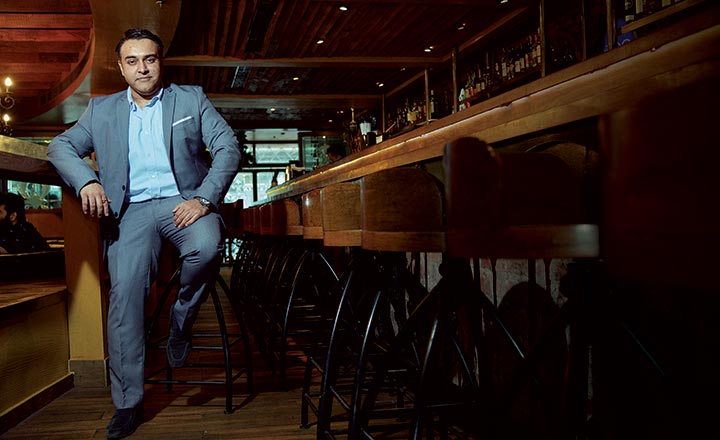“We have a ‘fire and forget’ investment philosophy. We choose something and leave it untouched for a long time,” says restaurateur Zorawar Kalra and former host of MasterChef India, who has invested 30% of his wealth in equities. “I don’t have time to monitor my stock portfolio on a monthly or a weekly basis. So, I invest in something and then forget about it for 10 years. And, for that long, nothing gives you better return than equity,” he says.
Within equities, Kalra sticks to his side of the table — food and beverages. His key holdings are Tata Global Beverages (which owns Starbucks), Speciality Restaurants (Mainland China, Oh! Calcutta) and Jubilant FoodWorks (Domino’s). “I don’t bother about intra-year or two to three year of ups and downs in such stocks,” says Kalra.
Though he has a wealth manager, the 41-year-old prefers to do his own research. “I invest in one or two stocks a year, and then forget about them,” says Kalra, who grew up watching his grandfather, an avid investor, sifting through annual reports of companies. “He was from the Army but he made a lot of money just by prudently investing in stocks and real estate. He would invest every dime back,” he says.
But a major chunk of Kalra’s portfolio is skewed towards real estate (70%), equally split between commercial and residential properties. “I only buy prime real estate. If I buy an apartment, I prefer one-bedroom units. In office space, I buy those close to the highway,” he says. Being in the restaurant business, Kalra feels he can read the pulse of this market better. “We do a lot of catchment analysis and a lot of feasibility studies before opening our restaurants,” he says.
Kalra has invested mostly in Gurugram. He has picked properties in two areas — Udyog Vihar (known for industrial/corporate space) and Golf Course Extension Road (known for corporate and residential high-rise space).
However, with builders defaulting on delivery deadlines, real estate can prove to be tricky. Kalra though is unfazed: “One can invest in the middle phase, around half-time, of a project. Several units remain unsold even then. And go for a trusted developer.”
The 41-year-old has added a new asset class a year ago — start-ups. He has made a couple of investments, buying less than 20% stake in two IT ventures. “Both are food-tech companies and it is an early-stage investment.” Kalra did consider bitcoins at one point in time but didn’t go ahead with it. “Whatever I can’t understand, I give it a pass,” sums up Kalra.











